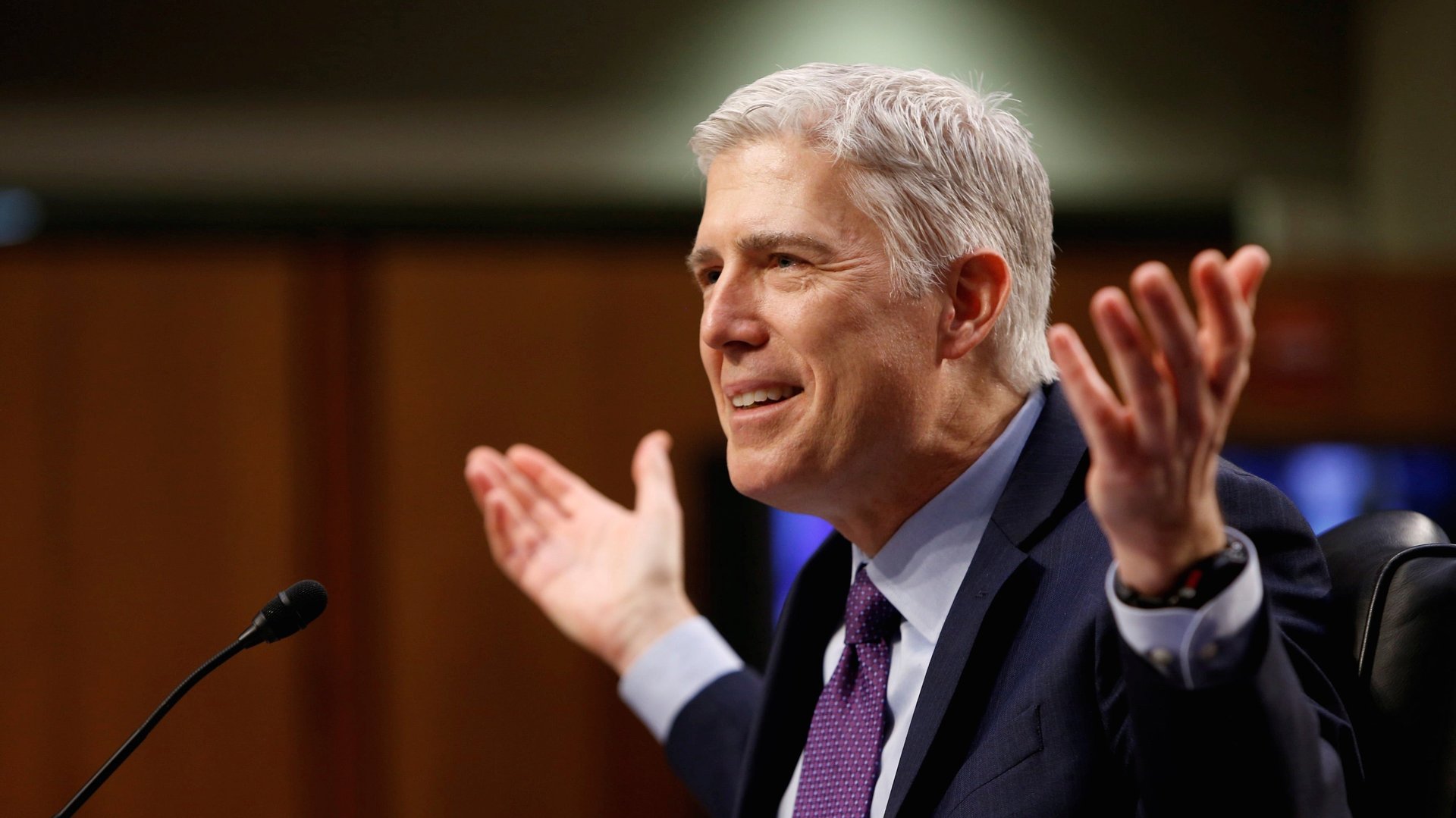Mitch McConnell broke the Democratic filibuster of Gorsuch—what that means for American democracy
In the US Senate today, which is perhaps more ideologically divided now than at any point in recent history, Democrats unsuccessfully sought to block president Trump’s appointment to the Supreme Court, conservative federal judge Neil Gorsuch, by way of a procedural filibuster—an obstructive tactic meant to delay a final vote by extending debate indefinitely.


In the US Senate today, which is perhaps more ideologically divided now than at any point in recent history, Democrats unsuccessfully sought to block president Trump’s appointment to the Supreme Court, conservative federal judge Neil Gorsuch, by way of a procedural filibuster—an obstructive tactic meant to delay a final vote by extending debate indefinitely.
To push back, Republican Senate majority leader Mitch McConnell of Kentucky overrode the filibuster by changing a key rule under which Supreme Court justices are confirmed. The rule change required only a simple majority of 51 votes out of 100, as opposed to the 60-vote majority that he first unsuccessfully sought to break the filibuster. McConnell wasn’t without precedent—in 2013, facing substantial obstruction from Republican senators under a reelected president Barack Obama, Democrats under their leader Harry Reid made the same procedural move for many presidential appointees—but not for Supreme Court nominees.
The so-called “nuclear option” effectively wipes out any incentive for presidents to select centrist Supreme Court nominees. The result is likely to be the nomination of more ideologically extreme justices and a more starkly divided court. Today’s vote will change the makeup of the high court in a way that will ripple out for decades.
Although Republicans stand to benefit from such a rule change in the current political climate, Republican senators had been among the most vocal opponents of a revived nuclear option.
“Now that we’re entering into an era where a simple majority decides all judicial nominations, we will see more and more nominees from the extremes of both left and right,” Arizona senator John McCain, a one-time Republican nominee for president, said yesterday, a sentiment echoed by senators Lisa Murkowski of Alaska and Lindsey Graham of South Carolina, both Republicans. “I do not see how that will ensure a fair and impartial judiciary,” he added.
Murkowski and Graham, however, both voted for a nuclear option to push Gorsuch’s nomination through, blaming their Democratic colleagues for forcing McConnell’s hand.
And McConnell remained defiant right up until going nuclear. “Democrats would filibuster Ruth Bader Ginsburg if President Trump nominated her,” the Republican majority leader said from the Senate floor on Wednesday. “We all know why. Democrats are bowing to hard-left special interests that can’t get over the results of the election.”
There’s a strong likelihood president Trump will appoint another justice to the Supreme Court over the next four years. The bench is aging. A number of justices are eying retirement. That prospect is even likelier over the next eight. The Senate, reaching back to the 2013 rule change, has virtually guaranteed Trump carte blanche on nominees with both this and his next selection—unless a Democratic wave comes to Capitol Hill in 2018, before another justice departs his or her seat.
In other words, if you thought the last week was a particularly noxious show of legislative partisanship, things are going to get far worse before they get better. And it appears that partisan divisiveness is now going to bleed out across all three branches of the US federal government.